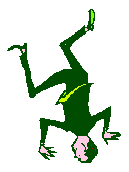Fear of Falling
Okay, get ready for the technical terms, as there are quite a few related to fear of falling!
- Basophobia is a fear of falling
- Climacophobia is a fear of falling downstairs
- Bathophobia is a fear of falling from a height
 As you can see, all involve falling in some way or other, and the symptoms are still the same in that they involve fear, anxiety, panic, and obsessive rumination about the potential to fall. This is particularly true for the 65 and older age group who may be more prone to falls, and once there has been a fall, may suffer from what has been known as post-fall syndrome.
As you can see, all involve falling in some way or other, and the symptoms are still the same in that they involve fear, anxiety, panic, and obsessive rumination about the potential to fall. This is particularly true for the 65 and older age group who may be more prone to falls, and once there has been a fall, may suffer from what has been known as post-fall syndrome.
It’s estimated that 30% of adults suffer from falls each year, according to the US Centre for Disease Control, and in 2010 alond this had an adjusted cost of $28 billion for just the US alone. Falls incur a heavy cost for both the sufferer and those who pick up the fallen, speaking both medically and from a caretaking perspective.
Once an elderly person has had a fall that was severe enough to cause doubts about his or her mobility, there is usually a loss of physical activity which can cause further decompensation in physical ability, and further decreases in confidence.
Interestingly, studies have shown that the practice of martial arts was a very useful aid to confidence through improved balance and co-ordination.
Look at this on improving self-confidence
In 2010, a Dutch study also demonstrated that teaching older adults how to fall safely, was also a great way to reduce fear and increase confidence. The training was carried out over 6 weeks with 45 minute sessions, and the study took into account reality versus training, and differences in falls.
What causes Fear of Falling?
As previously mentioned, an actual fall can trigger future fears of falling. Reesa, the receptionist at 4BC gave me permission to mention her situation, when I was in-studio for the fears and phobias segment. She had fallen from a 10metre rock wall and sustained a really bad broken leg, complete with pins in it. Now she is frightened of falling and doesn’t go rock-climbing any more.
- If someone has problems with postural control, their gait, and balance
- If the person suffers from vertigo, or dizziness
- How does this trigger a fear of falling?
Poor postural control means that the person does not hold themselves up firmly and confidently. Imagine a body where the muscles are more like jelly than strong supports and you will begin to get an idea of how that would affect one’s balance. This lack of balance is made worse when there are no visual clues to break the perception of depth, such as would happen if you walked on a pane of glass while very high up.
Our vestibular system senses instability when this happens, and then tries to correct the imbalance through counter-measures, such as an increased postural sway to attempt to readjust the visual feedback. This means that the centre of gravity is continually adjusting so things just get worse and worse.
It’s a bit like finding yourself on a slippery surface and as you begin to fall, you throw yourself in the opposite direction in an attempt to get back to your centre. Of course, this doesn’t work but it feels like it will at the time!
Evolutionary psychologists would say that the fear of falling is an innate or inborn fear which is very evident in ducks, turtles, rats, kids, lambs, and domestic pets, and is a a survival instinct.
Check this article on relaxation
Treatment for Fear of Falling
- Take up martial arts! Seriously, it will help you to learn how to relax, deep breathe, and become stronger so your posture improves, to improve your co-ordination and balance. This will give increased confidence in your ability to negotiate all the different surfaces, steps, and travelators you might encounter.
- Learn relaxation techniques and be able to relax your body and mind at will.
-
And, as I already said, see if you can find a class that teaches you how to fall safely. If there isn’t one around, approach someone who teaches judo or martial arts and ask them to train you.
- Some physiotherapists specialise in treating Vertigo and will teach exercises that help you learn how to stay oriented and upright. I recall a dance training exercise that I learnt years ago. If I do turns or spins too quickly I get dizzy and then my muscles begin to sag, so you have to learn to spot the same point at the same height each time you rotate. This really helps so that you don’t feel dizzy and lost postural control.
- Of course, hypnosis may also help, as your sub-conscious mind takes on learning how to stay balanced and centred.
Improve your general health and well-being – look at this now


